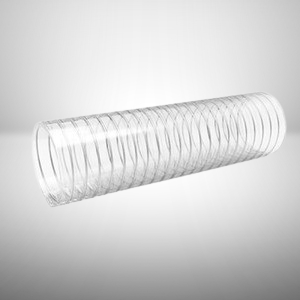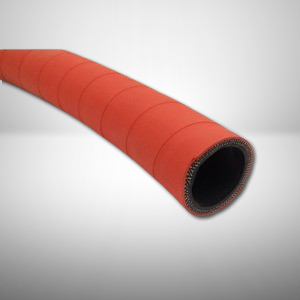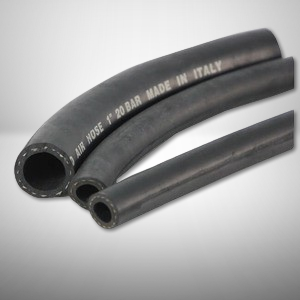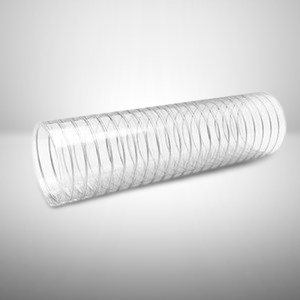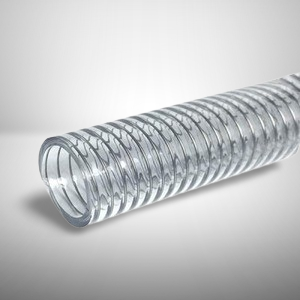PVC HEAVY DUTY STEEL WIRE HOSE
Heavy Duty Steel Wire Hose Specification, Classification, and Description
Heavy Duty Steel Wire Hoses are designed for robust applications that require high pressure and durability. These hoses combine the flexibility of PVC or rubber with the strength of embedded steel wire reinforcement, making them suitable for a variety of demanding industrial applications.
Specification
- Material:
- Hose: Typically made from Polyvinyl Chloride (PVC), synthetic rubber, or thermoplastic.
- Reinforcement: Embedded high-tensile steel wire helix.
- Properties:
- Inner Diameter: Typically ranges from 12 mm to 200 mm.
- Wall Thickness: Varies based on the inner diameter and specific application requirements.
- Pressure Rating: High pressure capabilities, typically ranging from 10 bar to 30 bar or more, depending on the hose size and construction.
- Temperature Range: -20°C to +70°C (-4°F to 158°F), though some variations can withstand higher temperatures up to +100°C (212°F).
- Length:
- Standard lengths are typically 30 meters or 50 meters per roll, but can be customized as per requirements.
- Color:
- Generally available in transparent, black, or custom colors upon request.
- Finish:
- Smooth or slightly corrugated outer surface to enhance flexibility and durability.
Classification
- By Diameter:
- Small Diameter: 12 mm to 25 mm.
- Medium Diameter: 26 mm to 100 mm.
- Large Diameter: 101 mm to 200 mm.
- By Application:
- Industrial Applications: For transporting various industrial fluids.
- Heavy Duty Water Suction and Discharge: Suitable for high-pressure water applications.
- Chemical Transport: Designed to handle harsh chemicals.
- Oil and Fuel Handling: Used in the transfer of oils, fuels, and other petroleum products.
- Agricultural Use: Suitable for heavy-duty irrigation and suction applications.
Description
- Applications:
- Water Supply and Drainage: Ideal for high-pressure water supply, drainage, and suction in industrial and agricultural settings.
- Oil and Fuel Transfer: Used in the transfer of oils, fuels, and other petroleum-based products in industrial environments.
- Chemical Handling: Suitable for handling a variety of chemicals and aggressive liquids.
- Construction: Commonly used in construction sites for dewatering, slurry transfer, and other heavy-duty applications.
- Industrial Vacuum Systems: Used in industrial vacuum systems requiring high durability and strength.
- Advantages:
- High Pressure Resistance: Capable of withstanding high pressures, making it suitable for demanding applications.
- Durability: The embedded steel wire provides strength and prevents kinking or collapsing under pressure.
- Flexibility: Despite its strength, the hose remains flexible, allowing for easy handling and installation.
- Chemical Resistance: Good resistance to many chemicals, oils, and greases, depending on the specific material of the hose.
- Abrasion Resistance: Resistant to abrasion, extending the life of the hose in harsh conditions.
- Corrosion Resistance: Resistant to corrosion from water and other substances, enhancing longevity.
- Limitations:
- Weight: Heavier than light-duty hoses due to the steel wire reinforcement.
- Cost: More expensive than standard PVC or light-duty hoses due to its enhanced construction and materials.
- Temperature Sensitivity: Performance can be affected at extreme temperatures, particularly at the higher end of the temperature range.
- Maintenance and Care:
- Regularly inspect for signs of wear, abrasion, or damage.
- Clean with water and mild detergent; avoid using harsh chemicals that could degrade the hose material.
- Store in a cool, dry place away from direct sunlight and harsh environmental conditions to extend the life of the hose.
- Ensure proper handling to avoid kinking or excessive bending, which can compromise the hose’s structural integrity.
